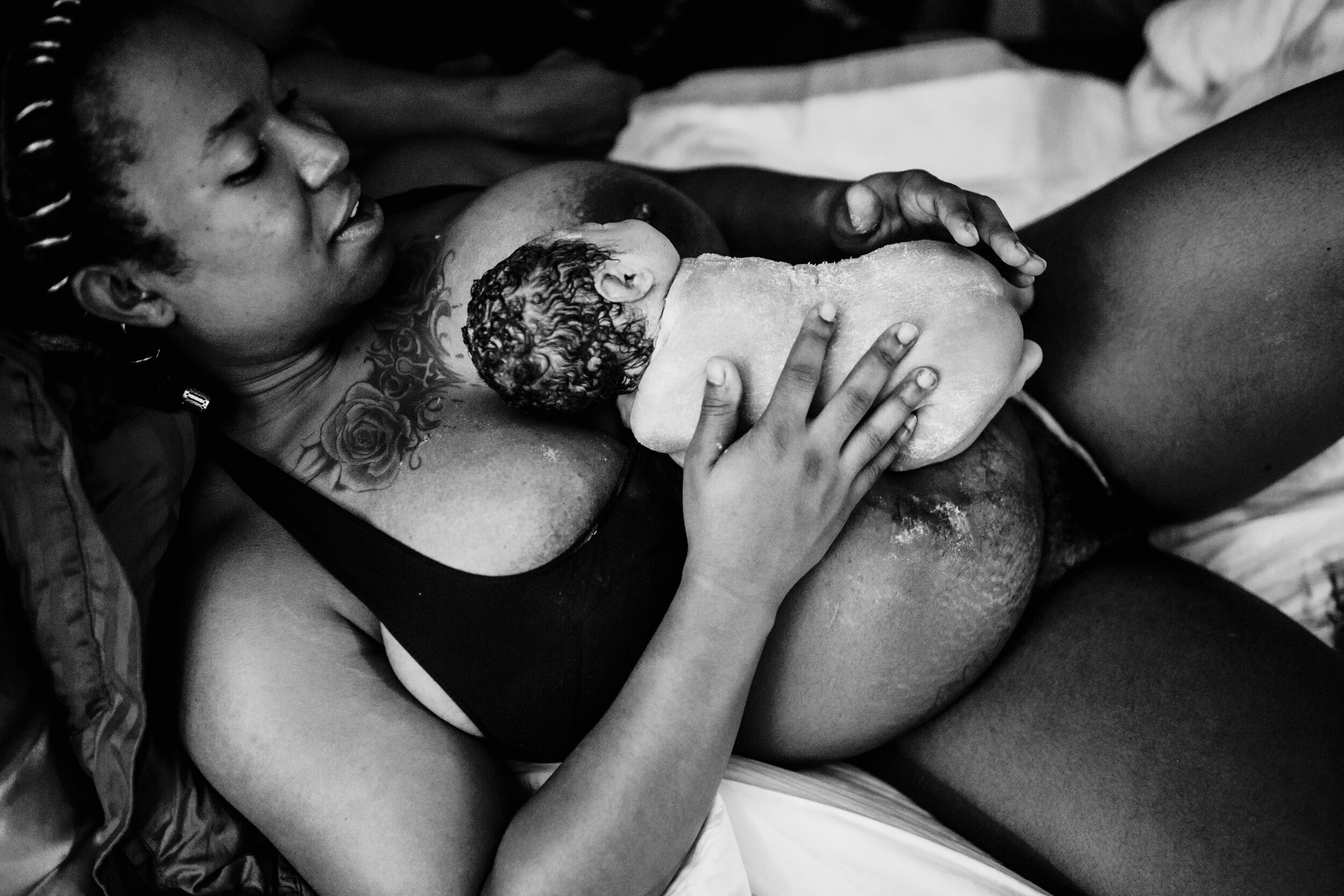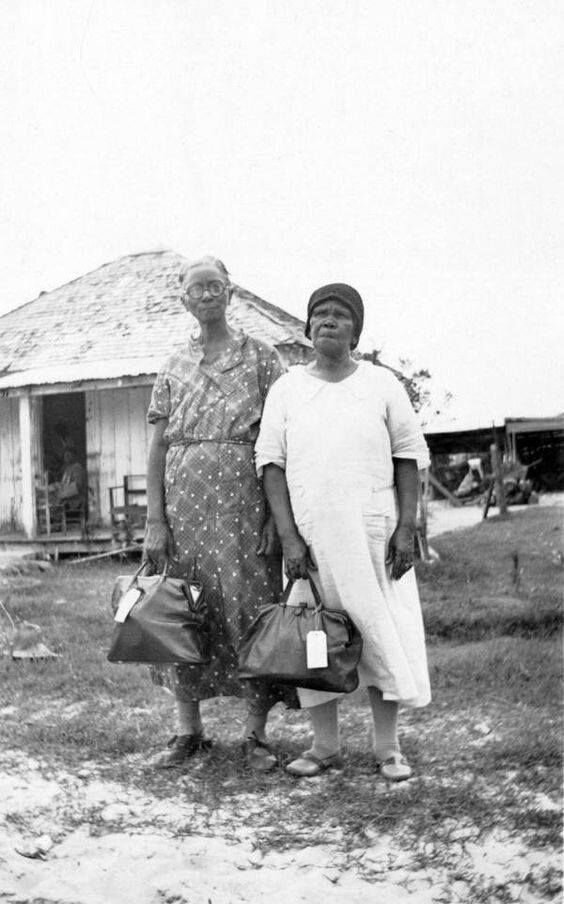The History of Black Midwives in America
“One of the darkest moments in US history was the systematic eradication of the African American midwife from her community, resulting in a legacy of birth injustices.”
American Black Midwifery and It’s Impact on Today’s Birth Culture
In honor of Black History month, I just wanted to spend some time and energy reflecting on this important unseen history and how it truly impacts our present. Black Midwives brought with them traditions for having a spiritual, ancestral, and healing birth and yet are most often overlooked for their white and medicalized successors.
These women’s faces and stories should not be lost in a sea of medical advancement because in so many ways they are the ones who gifted us “natural” birth as we see it today. And their absence in culture, now, plays a huge role in why we see Black mothers and babies dying at such an alarming rate.
Timeline
The 1600s
Europeans enslaved and brought African midwives to the US. With them they brought traditions of birth, motherhood and midwifery from Africa. The African midwife was more than just a birth worker or baby catcher, traditionally they were seen as spiritual healers, counselors, and were there to help the mother through all of the highs and lows of postpartum, including breastfeeding support and cooking. And by the mid to late 1600s while still enslaved in the US these black midwives and their traditions became the primary source of care for prenatal, birth and postpartum care for all women in the US.
“The historical role of the African American midwife was one of hope and health; whose expertise helped define cultural perceptions of motherhood, protected, uplifted and empowered women and men, and improved maternity care in communities across the nation.”
“It was determined that in order to get women into the hospital, you had to get rid of these midwives who were taking care of all these women in the home. All of these women who had been attending births all of these years, were now being blamed for all maternal deaths and infant deaths.”
|
The 1700s
This was until Obstetrics and the professionalization of medicine were introduced into the mainstream culture of the US in the 1700s. As the popularity in hospitals and Drs began to rise so did the false claims of black midwives and out-of-hospital birth. Drs accused black midwives of high mortality rates due to lack of education, skill, and cleanliness calling midwifery, primal, “a relic of barbarism.” and superstitious. When in reality the largest motivation for moving birth out of the home was the monetized hospital and Dr practices. This was at a time when modernization was most important and racism and slavery were common.
|
The 1800s
By the 1800s this holistic birth and motherhood care brought over by Africa and grown into a beautiful African American art was almost completely replaced by hospitals and white male Drs in the middle and upper-class communities. But Black midwives stayed very active in the poorest communities around the US. This was around the time that the term “granny” midwife became prominent. It was the term used for black midwives in most of the south who worked with the poorest communities and caught most black babies during the time of segregation. They still were responsible for 75% of births up until the 1940s in their communties. But around this time many states began creating laws to prohibit the practicing of lay midwives and some outlawed home birth midwifery completely.
|
The 1900s
By the 1950s due to state restrictions and racism almost all lay midwives, including Black granny-midwives, were systematically pushed out of practice or ousted. This led to most babies in all communities by the 1960s being born in the hospital under the care of an OB.
Oddly enough though there was a rise in midwifery in the 1970s led by middle to upper-class white women who wanted more choice in their birthing experience. But this rise in midwifery was almost completely done by white women who were now able to receive the education and navigate the racist laws and restrictions that had literally ousted Black granny midwives many years before.
“When you look at midwifery, say in the time of enslavement, the midwife was actually the person who made certain that women were able to produce healthy babies. Now after slavery ended she was no longer valuable because she was not making certain that there was a continued slave labor.”
|
Now
Around the world, midwives are still being utilized as main sources for maternal and birth care in most thriving first-world countries. The UK is known for having half of it’s births delivered by midwives while countries like Sweden, Denmark and France have numbers as high as 75% midwifery delivered births. While in the US midwives deliver under 10% of the births. Within these countries that tend to utilize midwives first and more frequently they also have very low mortality rates for both mother and baby. Rates that are a literally a fraction of the problem we face here in the US. Now I a realize that these numbers can’t take into account all aspects of birth, healthcare, c-section rates and racism that plague our country and raise our maternal mortality rates but it has to cause you to wonder WHY?
A recent statistic shows that there are about 15,000 certified midwives in the US, this is not taking into account lay midwives but it gives you a sense of the small but growing numbers of Midwives working in our country. Within that 15,000 the number of black midwives is close to 5%. This number should shock you and the lack of black midwives in our country can’t be disconnected to the high rates of black maternal mortality.
Black mothers are dying at 4x the rate as white women due to pregnancy, birth or postpartum-related issues. This is across all economical and educational backgrounds. Studies continue to show that the problem with this maternal mortality gap lies amongst the issues of racism and sexism. So I think back on these words quoted by Shafia Munroe,
“One of the darkest moments in US history was the systematic eradication of the African American midwife from her community, resulting in a legacy of birth injustices.”
We are living in this legacy of injustice and the numbers can’t lie.
I urge you to consider for a moment this History of the Black midwife and how these traditions of natural birth and holistic care were brought to our country. I think of these women as survivors who we have honestly been lost in a haze of history and racism. Then consider the impact this has had on our birth culture today, the lack of representation of Black wisdom in the birth space and the startling numbers of mortality rates in this country across the board and in particular the Black mothers and babies. I love these words by Pamela Loftman CNM,
“In addition to being from the community and understanding not only linguistically and culturally what women need, but midwives of color also protect women in a system that is hostile to them.”
We still have so much work to do to curve this problem in our birth culture but I think knowing the history and supporting these organizations that are making these mothers their continued mission is SO important.
The Faces of Black Midwiffery History
Onnie Lee Logan
1910-1995
Bennie "Mama" McGuire
1885-1985
Bridget Biddy Mason
1818-1891
Sibby Kelly
Maude Callen
1898-1990
Mary Francis Hill Coley
1900-1966
Rachel Harris
Margaret Charles Smith
1906-2004
Mamie Odessa Hale
How to Support Black Midwives and Birth Now!
Supporting starts with getting educated and learning to listen to Black mothers and midwives all over the world but especially within your own community. Then actually follow and support organizations that are doing the “boots on the ground” work in so many communities around the US.
List of Organizations and Non-Profits to Start Following and Supporting
Educational Articles and Sources to Learn More From
AMERICA IS FAILING ITS BLACK MOTHERS : article by HARVARD PUBLIC HEALTH
Why America’s Black Mothers and Babies Are in a Life-or-Death Crisis: article by The New York Times
The culture war between doctors and midwives, explained : YOUTUBE film created by ProPublica
Black Mothers Respond to Our Cover Story on Maternal Mortality: article by The New York Times



















